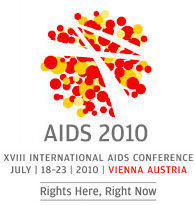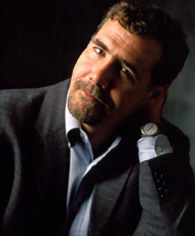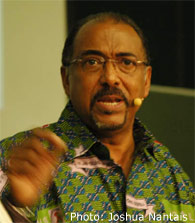This new, compelling data, was presented on Saturday in Vienna, Austria by researchers from the Johns Hopkins Center for Public Health and Human Rights.

Analyses from four countries - Malawi, Peru, Thailand and Ukraine – demonstrated that when HIV among MSM was properly addressed through adequate services and treatment, the broader community benefited dramatically. Statistical models from all four countries showed a downturn in general prevalence of HIV after targeted interventions addressed the specific needs of gay men and MSM.
The breakthrough announcement was made by researcher Chris Beyrer, MD in the lead-up to the start of the 2010 International AIDS Conference. Beyrer’s survey was part of an investigation into the global HIV epidemic among MSM, supported by the World Bank.
Beyrer's research has found that in many cases HIV prevalence is higher among gay men and other MSM, when compared to the general population. In some cases the prevalence among MSM was two-times higher than that of the general population. This led researchers to investigate the impact of increased care and support for concentrated epidemics. What they found was by specifically addressing most-at-risk populations such as gay men and MSM, it reduced the overall prevalence of the virus.
The study also shows that a targeted approach has a significant impact on the risk of transmission via bisexual sex or sharing needles via injecting drug-use. Both modes are considered "bridges" to the general population.

Human rights activists have long struggled to get the attention of world leaders and lawmakers to demand for greater care and support be provided to gay men and MSM. In spite of mounting scientific evidence, national HIV responses have often been dictated by social norms and debates on morality.
This disparity public health goals and government policy has left many gay men and MSM underserved by health care systems, or worse, facing barriers to access due to their sexual orientation.
Stephen Lewis, Co-Director of AIDS-Free World, felt adamant that this new data was “statistical, irrefutable, unsalable” and could be used to convince even the most hardline homophobes.
Recognition of HIV/AIDS as a human rights issue is the centrepiece of this year’s conference, which took the theme “Rights here, Right now”. The incoming President of the International AIDS Society, Elly Katabira, called for a “response based on evidence and not on ideology” during a press conference.

The Executive Director of UNAIDS, Michel Sidibé, echoed these sentiments when speaking to gay and MSM advocates. Sidibé said that “nothing will change without decriminalisation for men who have sex with men”.
Former US President Bill Clinton also weighed into the debate during his keynote address saying “there are too many places where the main source of transmission is still men having sex with men and the political apparatus acts like it's not happening, they're in denial… meanwhile, people get sick and die.”
Despite his optimism, it is unlikely the battle will be won overnight. Issues facing gay men and MSM account for only two-percent of the Vienna conference agenda, according to the Executive Officer of the Global Forum on MSM and HIV (MSMGF) George Ayala. “Even less [time] is devoted to issues related transgender people,”Ayala said in his speech.
Sessions that do address the concerns of gay men and MSM have rallied communities and LGBT advocates to make their voices heard, especially as the next chapter of the global HIV epidemic is shaped over the course of the conference. An estimated 20,000 conference delegates have descended on the Austrian capital – dominated mainly by health professionals and community representatives from Africa and Central and Eastern Europe.
A message of hope and determination for Asia’s gay and MSM advocates came from Gift Trapence, Director of the Centre for the Development of People in Malawi. “People should stand up, this is not a time to fear,” Trapence said in a press conference, “because if we keep silent no one who will speak on our behalf. So this is the time to speak up no matter what conditions you live in, you have the international support with you.”
Stay tuned for more reports (including latest news treatment guidelines, microbicides and harm reduction strategies) from AIDS 2010 – the XVIII International AIDS Conference in Vienna, Austria.
Laurindo Garcia is Fridae’s HIV Programs Manager and correspondent based in Manila.











 Printable Version
Printable Version











Reader's Comments
Be the first to leave a comment on this page!
Please log in to use this feature.